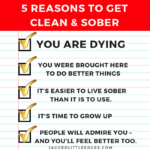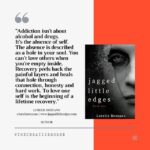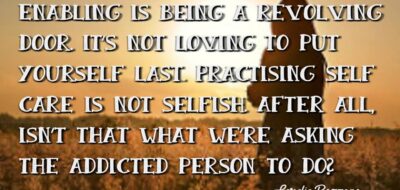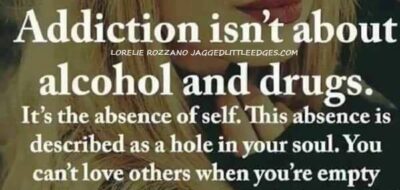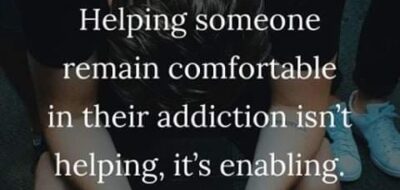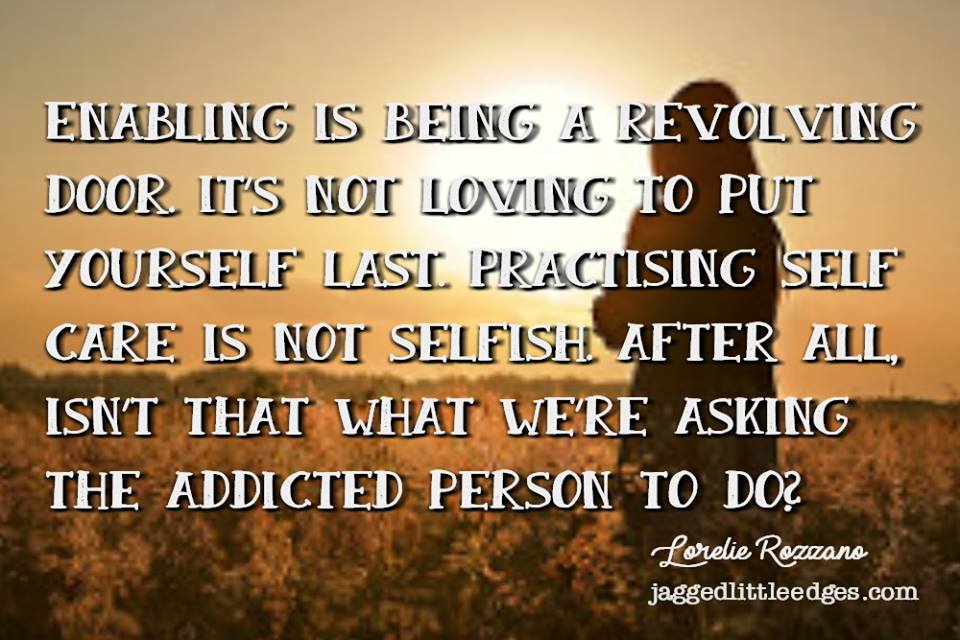
Have you ever heard your addicted loved one say, “I’m only hurting myself?” You probably want to scream, are you kidding me?!
The truth is, they’re not.
That’s why it’s important to have outside help. When you love someone struggling with addiction, it hurts. You’ll be overwhelmed, angry, frustrated, worried, and anxious, all at the same time. These intense emotions can cause you to act out in ways that aren’t helpful. Yelling, screaming, pleading, threatening, controlling, and enabling are unhealthy coping mechanisms to a stress response. So is guilt for behaving in such a manner. And after guilt? You guessed it. Enabling. And so the cycle continues.
A person outside the addicted relationship will help you look at your options in a different light.
For instance, when your loved one says they’re not hurting anyone but themselves, what that really is – is a clue to how sick and delusional they’ve become. It’s not a personal attack on you. It’s a symptom of their illness.
Just recently, Bree reached out to me because her 23-year-old son Jordan had relapsed again. Bree wanted to know why Jordan, who had been to multiple rehab facilities and completed them, could stay clean and sober in treatment, but when he came home, he relapsed.
Jordan began using marijuana in his teens, and now at the age of 23, was addicted to heroin. Bree claims Jordan hates being addicted but noted Jordan had a pattern. First, Jordan would exhaust all resources to get high. Then Jordan would feel desperate to get himself out of the mess he’d created. Next came rehab. Excels in rehab. Completes rehab. Comes home from rehab. Does well for a week or so, and then Jordan goes back out again. Bree notes her son seemed to relapse when he felt good about himself.
I asked Bree if Jordan attended meetings or aftercare when he got home. Did Jordan attend an intensive outpatient program (IOP) that included random drug testing? What about recovery coaching? Did Jordan work? What did Jordan do all day long?
Bree acknowledged her son did attend a few meetings but wasn’t comfortable asking a stranger to be his sponsor. Bree also mentioned her son didn’t work. Jordan slept most of the day due to being up late playing video games. I asked Bree why her son didn’t work. Her response to my question was this; Jordan needed to focus on his recovery – which he obviously wasn’t doing.
When you work in a treatment center, you regularly see young men and women like Bree’s son. After multiple rehab centers, they have the treatment lingo down to a tee. They appear to be a counselor’s dream. They’re even described as “junior counselor.” While this might seem like a good thing, it’s not. These folks don’t act out. They say all the right things. They’re people pleasers. They like to be leaders and mentor their peers with the vast knowledge they’ve accumulated through their many stays in rehab. Repeaters shine in treatment. They’re popular, and other young people emulate them. But the problem is, they’re so focused on looking good, they don’t get real. Helping others distracts them from dealing with their own issues. Let’s face it. It’s a whole lot easier to focus on other people’s problems than it is to look in the mirror.
When you’ve been through multiple rehab centers, you tend to think you know something. Convincing repeat patients otherwise is difficult. The disease of addiction is progressive in nature. Each time a repeat patient comes back into treatment, they’re sicker than they were before. If treatment repeaters really knew something, they wouldn’t keep coming back.
Bree’s son was just 14 when he first started smoking marijuana. Because Jordan used weed to cope socially, he stopped growing emotionally, cognitively, and behaviorally. Although his physical age was 23, Jordan was immature. He had no life skills and barely made it through high school. Jordan never held a job for more than a few weeks, and everything Jordan needed was supplied by his parents.
While Jordan was in rehab, he was being held accountable. There were many eyes on him, watching and encouraging him to do the right thing. Jordan was on his best behavior in rehab. But with Bree, it was a different story.
Bree and her son have a codependent relationship. Bree’s son wasn’t the only one who needed to make changes. Bree needed to change, also. Although Bree didn’t know it, she was part of her son’s problem. Bree was a good mother, but she had difficulty saying no and seeing Jordan as a grown man. Bree made many excuses for Jordan and over-functioned in their relationship, enabling her son to remain in the role of a dependent child. If Bree’s son continued to live in his growing-up home after rehab, his chances of staying sober were slim.
For Jordan to succeed once he completes rehab, he will need long-term support in a sober housing community. On his own, Jordan feels overwhelmed by all the necessary tasks and reverts back to his old ways.
If Bree attends a family program for her codependent behavior, she will learn that saying no and setting healthy boundaries play a crucial role when recovering from addiction. Bree and Jordan can move forward in a healthy relationship not based on a parent/child role but on mutual respect and equal footing.
